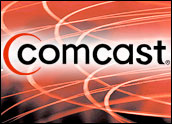
By a vote of 3-2, the Federal Communications Commission has sharply rebuked Comcast for its network management practices. It found not only that Comcast’s practices were invasive, but also that the company was likely motivated by anticompetitive issues.
“The Commission found that Comcast monitors its customers’ connections using deep packet inspection and then determines how it will route some connections based not on their destinations but on their contents,” said the FCC in a statement.
“In essence, Comcast opens its customers’ mail because it wants to deliver mail not based on the address on the envelope but on the type of letter contained therein. The Commission also found that Comcast’s conduct affected Internet users on a widespread basis. Indeed, Comcast may have interfered with up to three-quarters of all peer-to-peer connections in certain communities.”
The FCC further condemned Comcast’s practice of targeting P2P (peer-to-peer) applications that “provide Internet users with the opportunity to view high-quality video that they might otherwise watch (and pay for) on cable television. Such video distribution poses a potential competitive threat to Comcast’s video-on-demand (VOD) service.”
The ruling came in response to a complaint and petition for a declaratory ruling filed by Free Press and Public Knowledge in response to a news report by the Associated Press last fall, which found that Comcast had been interfering with customers’ file-sharing activities by masquerading as users and interrupting P2P connections.
Setting a Precedent
The FCC did not impose a fine in this case because it was the first of its nature, Robert Kenny, a spokesperson for the FCC, told the E-Commerce Times. “We set a precedent on what ISPs can expect moving forward, and we would consider fines in the future where we find violations. But because this is the first action we took, we are giving Comcast an opportunity to say how and when they will stop these practices.”
After the news of its activities become public, Comcast initially denied the allegations and then admitted to them, explaining that such tinkering was necessary to maintain adequate bandwidth for all of its users. It changed it rationale when confronted with evidence to the contrary — a shift that did not go unnoticed by the FCC.
“The company initially claimed that it did so (interfered with attempts by customers to share files online using peer-to-peer applications) only during periods of peak network congestion and of heavy network traffic,” its statement reads. “Later, confronted with yet more evidence suggesting that interference was not limited in this manner, Comcast recast its position yet again and admitted that it interferes with peer-to-peer traffic regardless of the level of overall network congestion at the time and regardless of the time of day.”
Corrective Measures
Comcast cooperated with the FCC’s investigation that followed and has been offering suggestions about how the situation should be remedied in the hope of staving off actual regulation. For example, it offered to police itself, rolling out a P2P Bill of Rights and Responsibilities that establish the processes and practices ISPs should use to manage P2P applications running on their networks.
It also formed an alliance with Pando Networks, testing its technology to smooth out bandwidth data as it flows through its pipes. Several weeks later, Comcast launched a trial of this technology in parts of Pennsylvania and Virginia.
Comcast decried the FCC’s decision in a statement: “We are disappointed in the Commission’s divided conclusion because we believe that our network management choices were reasonable, wholly consistent with industry practices and that we did not block access to Web sites or online applications, including peer-to-peer services,” said Sena Fitzmaurice, senior director, corporate communications and government affairs. “We also believe that the Commission’s order raises significant due process concerns and a variety of substantive legal questions. We are considering all our legal options and are disappointed that the commission rejected our attempts to settle this issue without further delays.”
Comcast can respond to the ruling in a couple of ways: It can appeal to the courts and request a stay, or it can file a petition for reconsideration at the FCC.
Score One for Net Neutrality
The ruling is a clear win for Net neutrality advocates who have been fretting about the nebulously defined and yet-to-be enforced concept that Internet providers should not determine which content its users access — or charge a higher fee for accessing certain types of content.
It couldn’t have been easy for the FCC to come to this point, telecom analyst Jeff Kagan told the E-Commerce Times, because the arguments for both sides have value. “In a perfect world, we would give free bandwidth to everyone. In the current environment it comes down to who will pay for [supporting] the content online — the user or the ISP.”
People have always assumed that the Internet would become subject to regulation sooner or later, he added. “The industry wanted to keep it free of regulation for as long as possible to allow it to flourish.” Now that the FCC has taken a definitive stand, “it will remain to be seen how far they will go.”























































Social Media
See all Social Media